How to Kill a Mkingbird Reading Level
Not only is Harper Lee's To Kill a Mockingbird ane of the most widely taught books in American high schools, but it'due south too one of the most popular books in general. In fact, information technology was merely recently voted "America's favorite novel"! Its popularity has endured for decades, and it's still taught in schools across the United states today. That's why we're explaining the elevation 18 To Kill a Mockingbird quotes for y'all. In addition to becoming familiar with the stand-out moments of the novel, by the finish of this article y'all'll accept a deeper understanding of the book's themes, characters, and almost important elements. Earlier we bound into our picks for the most important To Impale a Mockingbird quotes, hither'south a very, very cursory overview of To Kill a Mockingbird's plot. (But make sure y'all read the volume yourself—information technology's definitely a book you need to know!) To Kill a Mockingbird is a novel by Harper Lee that was published in 1960. It tells the story of events that take place in Maycomb, Alabama, in the 1930s. The narrator is Watch Finch, a six-year-old girl whose male parent, Atticus, is a prominent lawyer in the town. Atticus agrees to defend Tom Robinson, a black human falsely accused of raping a white woman, which makes the Finch family social pariahs. (Remember: this book takes place before the Civil Rights Movement in the United States!) The book follows Spotter for three years as she and her brother, Jem, learn to navigate the racism in their customs. Now that you've had a quick refresher of the book'due south plot, let's dive into our picks for the all-time To Kill a Mockingbird quotes to know! Mockingbirds are common in the American South and are famous for mimicking the calls of other birds ... which is where they get their name! We at present introduce to you 18 of the most important To Kill a Mockingbird quotes y'all should know. In this section, you'll observe an array of thought-provoking quotes, from To Kill a Mockingbird racism quotes that hash out one of the novel's key themes, to Atticus Finch quotes and more than. Atticus said to Jem one day, "I'd rather you shot at tin cans in the back grand, but I know you'll go afterwards birds. Shoot all the bluejays you desire, if you tin can hit 'em, simply remember it's a sin to kill a mockingbird." That was the only time I ever heard Atticus say it was a sin to do something, and I asked Miss Maudie about it. "Your male parent's right," she said. "Mockingbirds don't do one matter but make music for the states to enjoy. They don't swallow up people'southward gardens, don't nest in corncribs, they don't practise i matter only sing their hearts out for us. That's why it's a sin to kill a mockingbird." (p. 88) This first quote on our listing of critical TKAM quotes provides the book with its title, so we know it's important. Whenever yous see a quote like this and want to analyze it, you should first enquire yourself what the writer is trying to tell yous. On the surface, this passage seems to have piffling to do with the novel's major theme (racism) or any of its minor themes (morality, childhood, and the reality of rural Southern communities), but if nosotros think about it, nosotros notice that it actually does. On the one mitt, these lines show that Picket is learning the community shares a fix of values. Atticus isn't the merely person who thinks it'southward a sin to kill a mockingbird; Miss Maudie, the neighbor across the street, does, too. Ultimately, the mockingbird is a symbol of goodness and promise, so this passage teaches readers about the deviation between proficient and evil. The mockingbird and what it represents is "adept," and killing it—or, rather, destroying innocence—is evil. Every bit Scout learns these values, she grows out of her childhood and into the shared society of Maycomb, her boondocks. Ane of the many themes of To Impale a Mockingbird is Scout's coming of historic period, or her growth out of childhood innocence and into adulthood. The technical name for this type of story is a bildungsroman, which is German for "instruction novel," but usually we only call them coming-of-age stories. "Outset of all," he said, "if you tin larn a simple trick, Lookout, you'll get along a lot better with all kinds of folks. Y'all never really understand a person until you lot consider things from his point of view ... until you climb into his pare and walk effectually in it." (p. 32) This is definitely one of the most important Atticus Finch quotes to know. Empathy, or the ability to understand another person'due south experiences, is some other major theme in To Impale a Mockingbird, and Atticus serves as the moral compass of the book. For Scout and many other characters, Atticus is a model of what a expert person should exist: someone who values others and stands upward for what's right, no thing what society says. To Kill a Mockingbird explores why racism exists and how we can counteract it. This line of dialogue, which comes early in the volume, succinctly sums upward Atticus's opinion of racism: it'due south an disability or unwillingness to try to understand the perspective of one who is unlike oneself. Throughout the book, nosotros watch Watch have this lesson to heart as she tries to sympathize with the perspectives of a various fix of people in her community. Atticus and Tom Robinson in the 1962 motion picture accommodation of TKAM In a wink Atticus was upwards and standing over him. Jem buried his face in Atticus's shirt front. "Sh-h," he said. "I think that was her style of telling you—everything's all right now, Jem, everything'south all right. You know, she was a dandy lady." "A lady?" Jem raised his caput. His face up was crimson. "After all those things she said near yous, a lady?" "She was. She had her own views near things, a lot different from mine, perchance ... son, I told you that if you hadn't lost your head I'd take made y'all go read to her. I wanted you to see something nearly her—I wanted you to see what real backbone is, instead of getting the idea that courage is a homo with a gun in his hand. It's when you know y'all're licked before yous begin but you begin anyway and y'all come across it through no affair what. Y'all rarely win, simply sometimes yous do. Mrs. Dubose won, all xc-eight pounds of her. Co-ordinate to her views, she died beholden to naught and nobody. She was the bravest person I ever knew." (p. 107) Mrs. Dubose was a morphine aficionado who is able to conquer her addiction with Jem's help. Initially she is racist and harsh, which terrifies Spotter and Jem, but Atticus admires her because she lived "according to her views." Every bit yous read these To Kill a Mockingbird quotes, you'll notice the Atticus Finch quotes in which he'southward speaking to Jem are quite unlike from those spoken to Scout. Atticus tries throughout the volume to give Jem an alternative way of existence courageous—and, consequently, an culling mode of being a good human. Atticus tries to show Jem that he can exist brave but past pursuing what he believes is correct, even though he might ultimately fail. This quote teaches us that being a moral person tin can exist mettlesome in itself. In the first quote, nosotros looked at how the book traces Lookout man's growth, simply i thing that makes this book so appealing is that the other characters all show growth, too. Jem is a little older than Picket—he'due south 12 years erstwhile in Part Two—and then he's just almost to abound into adulthood. This is a difficult fourth dimension in a person's life because they're trying to discover their place in gild, and so information technology's important to Atticus that Jem understands violence isn't brave at all. "Well, virtually folks seem to recollect they're right and you're incorrect ..." "They're certainly entitled to recall that, and they're entitled to total respect for their opinions," said Atticus, "merely before I can alive with other folks I've got to live with myself. The one matter that doesn't bide by majority rule is a person's conscience." (p. 101) While Scout and Jem'southward growth in the book relates to their increasing noesis of the adult society of Maycomb, Atticus's growth relates to his desire to transcend these societal norms. He sees the means that Maycomb's ideas about race, manhood, and morality hurt many of its citizens. What makes Atticus such a moral graphic symbol is his tendency to follow his own instincts regarding what is right or incorrect, rather than post-obit the customs of his community. Considering he is a very visible political effigy in town, this feature sometimes makes him unpopular. "The older y'all grow the more than of it you'll see. The 1 identify where a homo ought to go a square deal is in a court, be he any colour of the rainbow, but people have a way of carrying their resentments right into a jury box. As yous grow older, you'll run across white men crook black men every twenty-four hours of your life, just let me tell you something and don't you forget it—whenever a white human being does that to a black homo, no thing who he is, how rich he is, or how fine a family he comes from, that white man is trash." (p. 207) This is one of the more than interesting To Kill a Mockingbird racism quotes because it'southward 1 in which Atticus's thoughts on race are most clearly presented. Whereas many of the townspeople believe that white people are superior to black people, Atticus believes all people should take equal representation in a court of law. In other words, Atticus takes a bold opinion against racism. Furthermore, he states that a white man who uses his privilege to cheat a black homo is, in fact, junior to that black man. This would've been a very unpopular opinion in the community in this time period, and this passage is yet some other instance of Atticus'south learning to transcend the customs of his community in order to live a more moral life. Maudie and Jem in the 1962 motion picture (Classic Film/Flickr) "What if he was kin to us, Aunty?" "The fact is that he is non kin to us, simply if he were, my respond would be the same." "Aunty," Jem spoke upwards, "Atticus says you lot tin can cull your friends but you sho' can't choose your family, an' they're still kin to you no affair whether yous acknowledge 'em or non, and information technology makes y'all expect right empty-headed when y'all don't." (p. 210) 1 of the about highly-seasoned aspects of To Kill a Mockingbird is that it gives us insight into what information technology means to be a family unit. Although Scout's mother is absent-minded—we don't even learn her first name—we lookout Atticus do his best to be a proficient father to Watch and Jem. Likewise, Scout and Jem are always doing their best to alive up to Atticus's instance of decency. While they aren't a typical Maycomb family, they're bonded together past beloved and respect. Through them, Lee shows readers that family unit isn't about having two parents—it's about the love that binds people together. "But there is one way in this country in which all men are created equal—there is i human establishment that makes a pauper the equal of a Rockefeller, the stupid man the equal of an Einstein, and the ignorant man the equal of whatsoever college president. That institution, gentlemen, is a court. Information technology can be the Supreme Court of the United States or the humblest J.P. court in the land, or this honorable court which you lot serve. Our courts take their faults, every bit does any human institution, but in this country our courts are the bully levelers, and in our courts all men are created equal." (p. 193) Each graphic symbol has his or her own conflict in To Kill a Mockingbird, and Atticus's master conflict is the clash between what he knows to exist morally correct and the expectations of his customs. Here, we take another of the Atticus quotes in which he states that the goals of the courtroom, which are to create a just and equal society, are more of import than the limitations of the local community; thus, they should not be subject to the same prejudices. Atticus is bold in these public assertions, which puts him in conflict with some of the other people in Maycomb. "An' they chased him 'due north' never could catch him 'cause they didn't know what he looked like, an' Atticus, when they finally saw him, why he hadn't done whatever of those things ... Atticus, he was real squeamish ..." His hands were nether my chin, pulling upwards the cover, tucking it around me. "Nearly people are, Scout, when y'all finally encounter them." (p. 263) Once more, Atticus is teaching Sentry to empathize with other people's perspectives. Although Atticus is morally in disharmonize with the culture of Maycomb for much of the volume, he is driven by the belief that everyone is, at heart, a decent person. He understands that his fellow townspeople are sometimes driven past the pressure to conform to social community rather than their ain sense of right and incorrect. Atticus seems to believe that if everyone were to follow their ethical instincts, they would choose to comport in a mode that is moral, and this is the lesson he consistently tries to instill in Scout. Atticus and Scout in the 1962 motion-picture show (Classic Picture show/Flickr) "No, everybody'south gotta learn, nobody'southward born knowin'. That Walter's as smart as he can be, he only gets held dorsum sometimes considering he has to stay out and help his daddy. Nothin'due south wrong with him. Naw, Jem, I think there's just one kind of folks. Folks." (p. 212) Walter Cunningham, Jr. is the son of a poor farmer who cannot beget to pay Atticus and instead pays him with things such as stovewood and hickory basics. Here, Picket is applying the lessons on empathy she's learned from Atticus in order to understand the experiences of someone from a lower class. She realizes that though Walter doesn't have the aforementioned advantages she does, he is doing his all-time to larn nonetheless. Not only does this quote show Lookout man's growth as a character, only it besides reinforces To Kill a Mockingbird'south theme of empathy. "Picket, only by the nature of the work, every lawyer gets at to the lowest degree one case in his lifetime that affects him personally. This i's mine, I guess. You might hear some ugly talk well-nigh it at schoolhouse, only do one thing for me if y'all will: y'all simply hold your head loftier and go on those fists downwards. No matter what anybody says to you lot, don't y'all let 'em get your goat. Try fighting with your head for a change ... it'south a expert one, fifty-fifty if information technology does resist learning." "Atticus, are nosotros going to win it?" "No, love." "Then, why—" "Simply because nosotros were licked a hundred years before we started is no reason for usa not to endeavor to win," Atticus said. (p. 75) In this To Kill a Mockingbird quote, Atticus is telling Scout how to conduct with honor in the face of arduousness. Atticus's conviction in his own morality puts not just himself in conflict with the townsfolk, but also, equally he understands, his family. As someone who cares deeply most his family unit, Atticus tries to prepare them for the backlash; however, he also teaches them that at that place is nobility in defeat, and so long equally i follows their best upstanding judgment. "There'due south some folks who don't eat like us," she whispered fiercely, "but you ain't chosen on to contradict 'em at the table when they don't. That boy's yo' comp'ny and if he wants to consume up the table textile you lot let him, you hear?" "He ain't company, Cal, he'southward just a Cunningham—" "Hush your mouth! Don't matter who they are, anybody sets foot in this house's yo' comp'ny, and don't you allow me catch you remarkin' on their ways like you was so high and mighty! Yo' folks might be ameliorate'n the Cunninghams simply it don't count for nothin' the way y'all're disgracin' 'em—if you tin't act fit to eat at the table you can just set here and swallow in the kitchen!" (p. 28) Again, Scout learns a lesson about class differences, and this time it comes from the family unit's housekeeper, Calpurnia. The fact that Scout is receiving life lessons from an African American woman who is treated not just as an equal simply as well as a member of the family is an case of how unlike the Finches are from most of the other townsfolk. Information technology also shows readers who might have their own prejudices that people who are unlike from them are still people—and they deserve to exist treated as equals and with kindness. Calpurnia, Jem, and Scout in the 1962 film (Classic Film/Flickr) "Jack! When a child asks you something, answer him, for goodness' sake. Just don't make a production of it. Children are children, just they tin can spot an evasion quicker than adults, and evasion but muddles 'em. ..." (p. 85) This is one of the lesser-known Atticus Finch quotes, but it's still an of import one. Here, Atticus is talking to his brother John Hale Finch after Spotter is heard cursing. This quote shows how Atticus treats his children every bit if they are as intelligent equally adults (in this case, as if they are maybe more than intelligent than adults). Atticus always treats everyone with respect and is very insightful in his views of human being behavior, and this quote reveals his thoughts on parenting. He never claims dominance over his children simply rather leads by example, treating them more as peers than as kids. The fact that his children call him by his first proper noun, Atticus, shows that they consider themselves on equal footing with him too. "Atticus told me to delete the adjectives and I'd accept the facts." (p. 59) This quote is Scout'due south respond to Jem afterward he tries to print her with his knowledge of Ancient Egypt. Although it's a adequately off-hand annotate on Watch'due south part, information technology does help united states understand a few things virtually Atticus. 1 is that this is yet another example of his influence over his children. His opinions inform theirs throughout the whole book. Some other, more important, attribute of Atticus that this annotate reveals is his straightforward moral sensibility. You tin apply this to his decision to defend Tom Robinson. Afterwards deleting the describing word "black," Tom Robinson is no longer a "blackness homo" but but a human being, which is the fact that guides the way Atticus treats and represents Tom. Aunt Alexandra was fanatical on the subject of my attire. I could not possibly hope to be a lady if I wore breeches; when I said I could do nothing in a wearing apparel, she said I wasn't supposed to be doing things that required pants. Aunt Alexandra'south vision of my deportment involved playing with small stoves, tea sets, and wearing the Add together-A-Pearl necklace she gave me when I was built-in; furthermore, I should be a ray of sunshine in my father's lonely life. I suggested that 1 could exist a ray of sunshine in pants simply also, only Aunty said that one had to bear like a sunbeam, that I was born adept but had grown progressively worse every year. She hurt my feelings and set up my teeth permanently on edge, but when I asked Atticus about it, he said in that location were already plenty sunbeams in the family and to get on about my business, he didn't mind me much the way I was. (p. 80) Aunt Alexandra is Atticus's older sister and is often more than bourgeois than him. Here, she criticizes Spotter'south clothes and behavior, which would be described as "tomboyish." Despite Aunt Alexandra'south criticism, Atticus encourages Scout to act and clothes as she wishes. For the place and time period, Atticus is socially progressive, and this quote shows the states some other aspect in which Atticus trusts his children to be themselves and doesn't try to force social customs upon them. Jem, Atticus, and Maudie in the 1962 picture show (Classic Film/Flickr) "There are just some kind of men who—who're so busy worrying virtually the next globe they've never learned to live in this one, and y'all can look down the street and see the results." Miss Maudie stopped rocking, and her vocalisation hardened. "Y'all are too young to understand it," she said, "but sometimes the Bible in the hand of one man is worse than a whiskey bottle in the mitt of—oh, of your father." (p. 46) Although all the characters in the volume are more or less devout Christians, many of them exercise not behave equally such. These people often act with prejudice, malice, and fright. The hypocrisy of existence outwardly religious simply non empathetic or empathetic is one of the ironies that drives Atticus to deed on Tom's behalf. In this quotation, Miss Maudie is correct that many of the most unsafe people in the town are the virtually devout. Atticus is once again held up to a high standard of behavior. I mumbled that I was sorry and retired meditating upon my offense. I never deliberately learned to read, only somehow I had been wallowing illicitly in the daily papers. In the long hours of church—was information technology then I learned? I could not remember not being able to read hymns. At present that I was compelled to think about it, reading was something that only came to me ... I could non think when the lines above Atticus's moving finger separated into words, but I had stared at them all the evenings in my retention, listening to the news of the twenty-four hours, Bills to Be Enacted into Laws, the diaries of Lorenzo Dow—annihilation Atticus happened to exist reading when I crawled into his lap every night. Until I feared I would lose it, I never loved to read. One does not love breathing. (p. 21) In this passage, Scout has been discouraged from reading by her teacher, Miss Caroline, who disapproves of Atticus having already taught Sentinel to read. Every bit this quote illustrates, Watch considers reading to not only exist a pleasure in itself, merely besides a major attribute of her relationship with her father and an essential attribute of her identity (as essential as breathing). Hither, we run across how Atticus's nurturing of his girl's intelligence has led to her rebellious, questioning identity, and information technology besides reveals his own progressive views. Atticus's choice of reading matter (the news of the day, Bills to Exist Enacted into Laws, the diaries of the eccentric traveling preacher Lorenzo Dow) gives usa insight into Atticus'due south interests too. The fact that Atticus would share with a child as young equally Scout such mature reading material reveals the respect he afforded her. He's not trying to protect Scout from the realities of the world around her—instead, he wants to expose her to ideas so she can become an contained thinker and, hopefully, a kind person. That's why Picket is upset to accept lost not only the privilege of reading just besides an of import aspect of her friendship with her father. Summertime was on the mode; Jem and I awaited information technology with impatience. Summer was our best flavour: it was sleeping on the back screened porch in cots, or trying to slumber in the treehouse; summer was everything good to eat; it was a one thousand colors in a parched landscape; but most of all, summertime was Dill. (p. 36) The book takes identify over about a two-twelvemonth period, and we know this because Watch's friend Dill, who but visits during the summer, visits three times. Many of the near memorable scenes have identify during the summer (such every bit the incident with the rabid dog, the visits from Dill, the search for Boo Radley, and the hot courtroom of Tom Robinson'south trial), making the estrus of summer almost similar another graphic symbol in the book. Summer is also the time that the rebellious Spotter is free from the social pressures of school—is able to pursue her ain interests and behave how she wishes. Summer symbolizes freedom and adventure for Scout, as it notwithstanding does for many American students today! Many authors call back of setting (the time and place in which a story takes place) as one of the most important elements of a volume. Setting is one of the ways in which readers nearly pleasurably engage with a volume, because a well-described location can seem like a new earth into which we tin escape. When he was nearly thirteen, my blood brother Jem got his arm badly cleaved at the elbow. When it healed, and Jem'southward fears of never existence able to play football were assuaged, he was seldom cocky-conscious about his injury. His left arm was somewhat shorter than his correct; when he stood or walked, the back of his mitt was at correct angles to his body, his thumb parallel to his thigh. He couldn't have cared less, so long as he could pass and punt. (p. 8) This is the opening paragraph of the book. Interestingly, the book begins with the last effect of the entire book, Jem'southward cleaved arm. Actually, the entire book serves equally Watch'due south explanation of how Jem came to break his arm. This as well tells us that the narrator, Spotter, is living long later on the events of the novel and is looking back in fourth dimension in gild to tell her story. This gives the volume an atmosphere of nostalgia—we know she is recalling a childhood that has long since passed. Many coming-of-historic period stories brainstorm with the author long later on the time frame of the book looking backward and watching themselves larn the lessons that seem important in retrospect. Why do authors do this? Because recalling the events from some future time flow gives the narrator an excuse to understand what'south important nigh the story in a way that someone living through information technology at the fourth dimension wouldn't. As we go through our lives each day, we don't know what is going to be important until after the fact—after nosotros've learned our lessons and expect back on what led u.s.a. to learn them. Analyzing important quotations isn't magic, only it does take practice. Whether you lot're looking at TKAM quotes or quotes from another volume, you'll need to know how to analyze them smartly. Here are the questions you demand to ask yourself to exist able to pick out the near important quotes in a book and analyze them like a pro. Think of a work of literature as a series of choices an author has made intentionally in order to communicate something to the reader. So, when you lot encounter a passage that strikes you as meaning in some way, endeavour to place yourself in the author's perspective and effigy out why you lot retrieve the author made the choices they did. Characters are people, and, like people we know in our actual lives, they make decisions and deed co-ordinate to their motivations. Whenever a graphic symbol does not seem to be realistically motivated, the graphic symbol fails to move us. So ask yourself what the selection tells us about a character'south motivation and perspective. A character who lives in a cleaved-down school bus in a junkyard will take a different perspective and will make dissimilar decisions than a graphic symbol who lives in a 30-story housing complex. Both of these are examples of poverty, but they entail very different experiences—rural versus urban, and isolated versus overcrowded. As well, a story that takes place in a junkyard would have a completely different set of pressures. Recollect well-nigh how the setting influences To Kill a Mockingbird. Information technology's set up in the rural Southern U.s., with its hundreds of years of slavery and racism. That creates a set up of pressures quite different from, say, those in a major European city. In fact, To Impale a Mockingbird wouldn't work if it were set anywhere else! Talking about why that is can lead to some really stellar assay. The reason literature is important is that it gives usa insight into other peoples' lives. Every bit Atticus says, it allows us to "climb into [other people's] peel and walk around in it." This gives us more understanding for perspectives unlike our own and broadens our sense of experience. When you come across a passage in a book that hooks you for some reason, ask yourself why this specific passage feels relevant to you. What experiences have you had that are similar or intersect with this quote? This can exist an excellent writing prompt if yous're looking for inspiration for a new essay. When you read the news headlines or electric current events, do you nonetheless see manufactures near racism? Are people even so falsely defendant of crimes, and do they sometimes get bedevilled due to the systemic biases of their communities? Is this still a affair? Yes, it is. Sadly, it likely always will be, and that is why To Kill a Mockingbird is still so relevant, even 60 years since its publication. Also, communities still have mutual cultures, fathers nonetheless love their children, and picayune girls withal abrasion against the expectations of feminine dress and beliefs. Every generation finds new aspects of classic literature that inspire them and that they can chronicle to. When you're trying to analyze a passage, endeavour to find ways of relating it to the nowadays-day world. Want to learn more about To Kill a Mockingbird? Here are four articles and books that will give you greater insight into Harper Lee'southward famous novel! This extract from Cep'due south book Furious Hours: Murder, Fraud, and the Last Trial of Harper Lee describes Lee's later years, her struggles with fame, and her inability to write a follow-up to her famed To Impale a Mockingbird. This is a cracking choice for anyone who wants to know more almost the reclusive woman backside the book. (And, of grade, if y'all desire to read Cep'southward book, you lot tin can detect it hither!) This commodity explores the differences in how Atticus Finch is portrayed in To Kill a Mockingbird and Harper Lee'south other novel, Go Set a Watchman. It as well describes Lee's relationship with her ain father, A. C. Lee, and how he served as an inspiration for the character of Atticus Finch. Marja Mills is a announcer who befriended Harper Lee and her sister, Alice. She lived next door to them for several years and wrote this portrait of Lee in her later years every bit she lived a life of near-solitude in Monroeville, Alabama—the metropolis that inspired Maycomb in To Kill a Mockingbird. This is an adaptation for younger readers of Shields'southward earlier biography of Lee titled Mockingbird: A Portrait of Harper Lee from Childhood to Get Prepare a Watchman. This volume will requite you a thorough overview of Lee's unabridged life in a more attainable fashion. Trying to analyze literary quotes without knowing literary elements is ... well, it'due south similar trying to dig a hole without a shovel! If you're going to analyze literature, yous need to brand sure you have the correct tools for the chore. Here's a listing of the elements you'll observe in every piece of literature, and here's a guide to the 31 literary devices you admittedly need to know. Did you appreciate our in-depth analysis of To Kill a Mockingbird? If and then, you should bank check out our complete series on The Great Gatsby . We break down the volume affiliate past chapter and fifty-fifty have articles on character and theme assay. By the finish of our series, you'll be an expert in F. Scott Fitzgerald'southward most pop work. Maybe you feel super confident in your ability to tackle a novel, but poetry makes you interruption out into a cold sweat. Never fear: here are some guides to poetic styles (such as sonnets) and poetic elements (such as personification and iambic pentameter) to get you started. Also, we have a complete analysis of "Do not go gentle into that good nighttime" written by a college professor and so you can see what a cracking poesy analysis looks like! These recommendations are based solely on our knowledge and experience. If you purchase an item through i of our links PrepScholar may receive a commission. 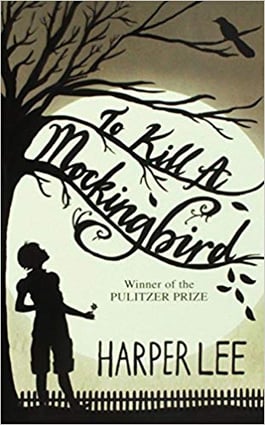
A Brief Overview of To Kill a Mockingbird

18 Critical To Kill a Mockingbird Quotes
Quote #ane: Information technology'southward a Sin to Kill a Mockingbird
Quote #2: Atticus on Empathy
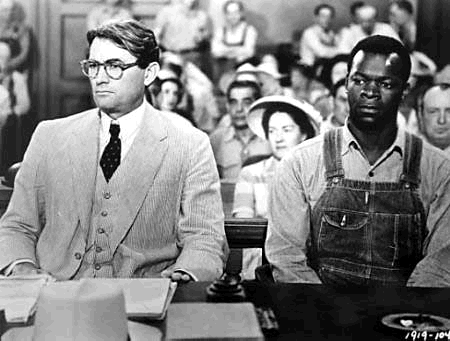
Quote #3: Atticus on Backbone
Quote #4: Atticus on Conscience
Quote #5: Atticus on Racism
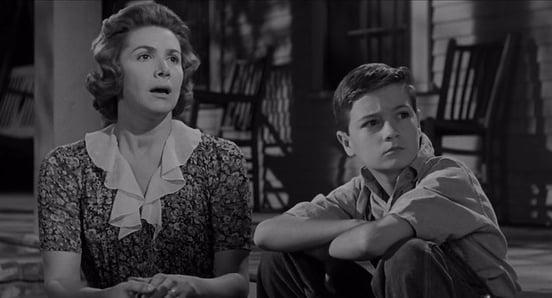
Quote #6: Jem on Family
Quote #7: Atticus on Equality
Quote #viii: Atticus on Empathy (Once more)
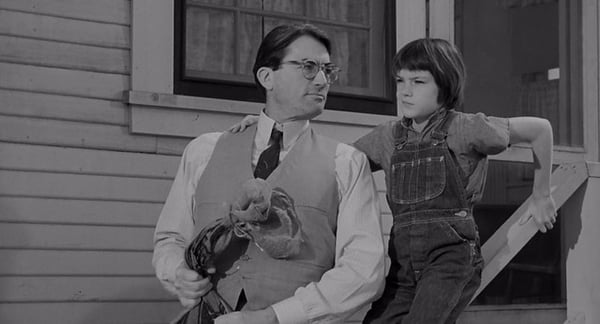
Quote #9: Scout on Class
Quote #10: Atticus on Nobility
Quote #eleven: Calpurnia on How to Treat Company
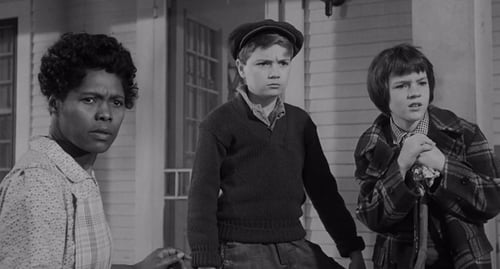
Quote #12: Atticus on Children
Quote #13: Atticus on Embellishment
Quote #14: Atticus on Scout'southward Beliefs
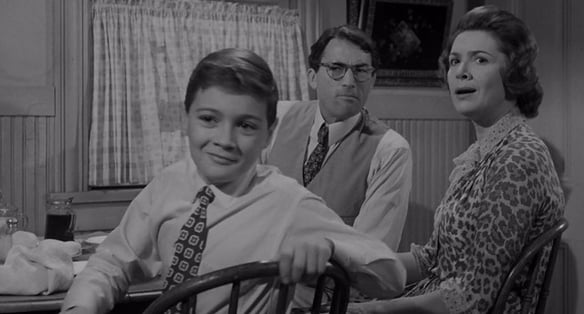
Quote #15: Miss Maudie on Religion
Quote #16: Spotter on Reading

Quote #17: Spotter on Summer
Quote #xviii: Picket on Jem's Broken Arm

5 Questions to Consider When Analyzing Book Quotes
#1: Why Is the Author Telling Us This?
#2: What Does This Tell Usa Virtually the Character?
#3: How Does the Setting Influence the Story?
#iv: What Can This Teach Me About My Own Life?
#5: How Is This However Relevant?
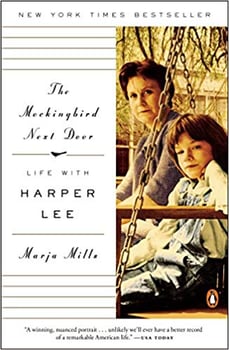
Beyond To Kill a Mockingbird Quotes: Further Reading
"Why Harper Lee Struggled to Write Once again After To Kill a Mockingbird" by Casey Cep
"Who Was Atticus Finch?" past Laura Douglas-Chocolate-brown
The Mockingbird Next Door: Life with Harper Lee past Marja Mills
I Am Scout: The Biography of Harper Lee past Charles J. Shields

What'southward Next?

About the Author
Ashley Sufflé Robinson has a Ph.D. in 19th Century English Literature. As a content writer for PrepScholar, Ashley is passionate about giving college-bound students the in-depth data they need to go into the school of their dreams.
lunsfordconand1977.blogspot.com
Source: https://blog.prepscholar.com/to-kill-a-mockingbird-quotes
0 Response to "How to Kill a Mkingbird Reading Level"
Publicar un comentario